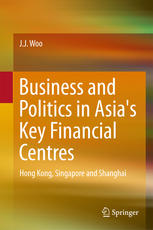

Most ebook files are in PDF format, so you can easily read them using various software such as Foxit Reader or directly on the Google Chrome browser.
Some ebook files are released by publishers in other formats such as .awz, .mobi, .epub, .fb2, etc. You may need to install specific software to read these formats on mobile/PC, such as Calibre.
Please read the tutorial at this link: https://ebookbell.com/faq
We offer FREE conversion to the popular formats you request; however, this may take some time. Therefore, right after payment, please email us, and we will try to provide the service as quickly as possible.
For some exceptional file formats or broken links (if any), please refrain from opening any disputes. Instead, email us first, and we will try to assist within a maximum of 6 hours.
EbookBell Team

0.0
0 reviewsThis book provides unique insights into the politics of finance and the socio-political relations which drive financial policymaking in Hong kong, Singapore, and Shanghai. While the existing literature in the field focuses mainly on economic explanations for financial centre development, this book fills a gap by focusing on the socio-political relations which underpin the financial policy-making process. Drawing on extensive interviews with senior policy-makers and financial sector professionals, the book describes how state-industry relations drive financial policy-making in three major financial hubs. Insights and policy recommendations drawn from these interviews will be particularly useful for policy-makers and financial sector professionals hoping to draw lessons from the successful development of the three leading Asian financial centres. Business and Politics in Asia's Key Financial Centres draws on public policy theoretical frameworks for its analytical basis. The three chapters focusing on the historical development of Hong Kong, Singapore, and Shanghai also provide a consolidated narrative with regard to the development of these three cities as leading financial centres, while also serving as independent case studies. Scholars focusing on policy processes and political factors that underpin financial sector development, as well as instructors and students of public policy, international political economy, and financial sector policy, will find this book useful for their research.